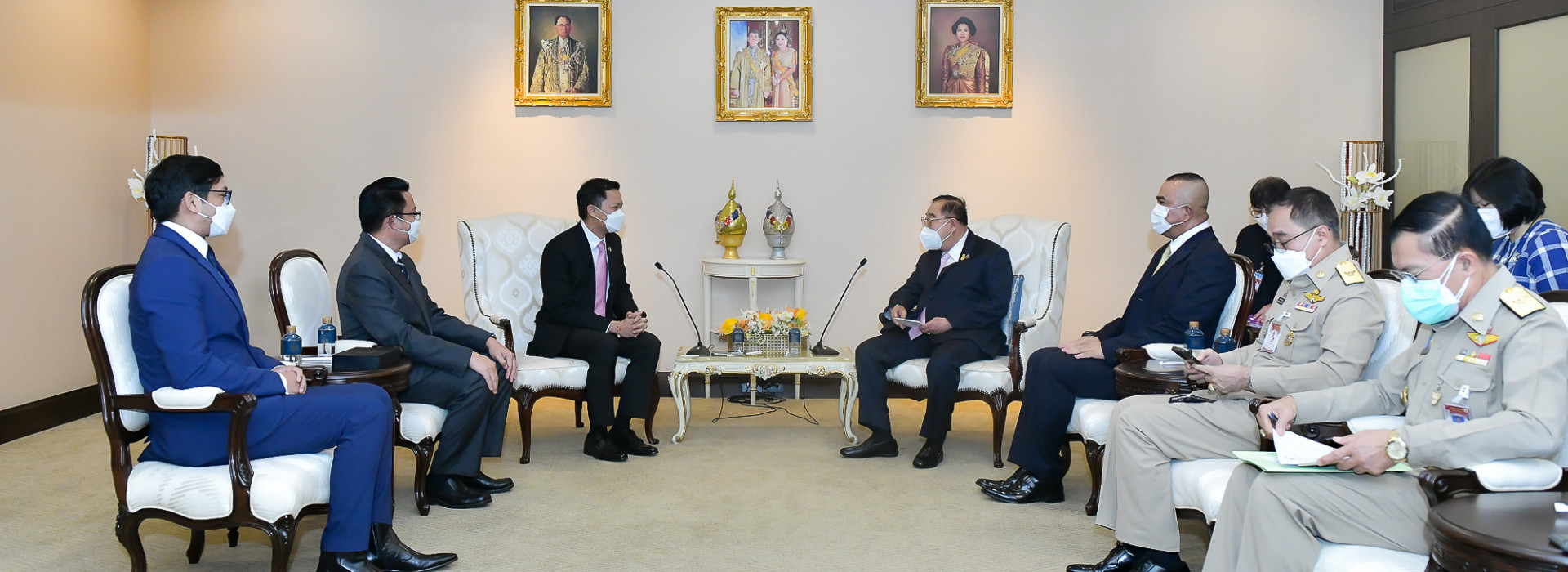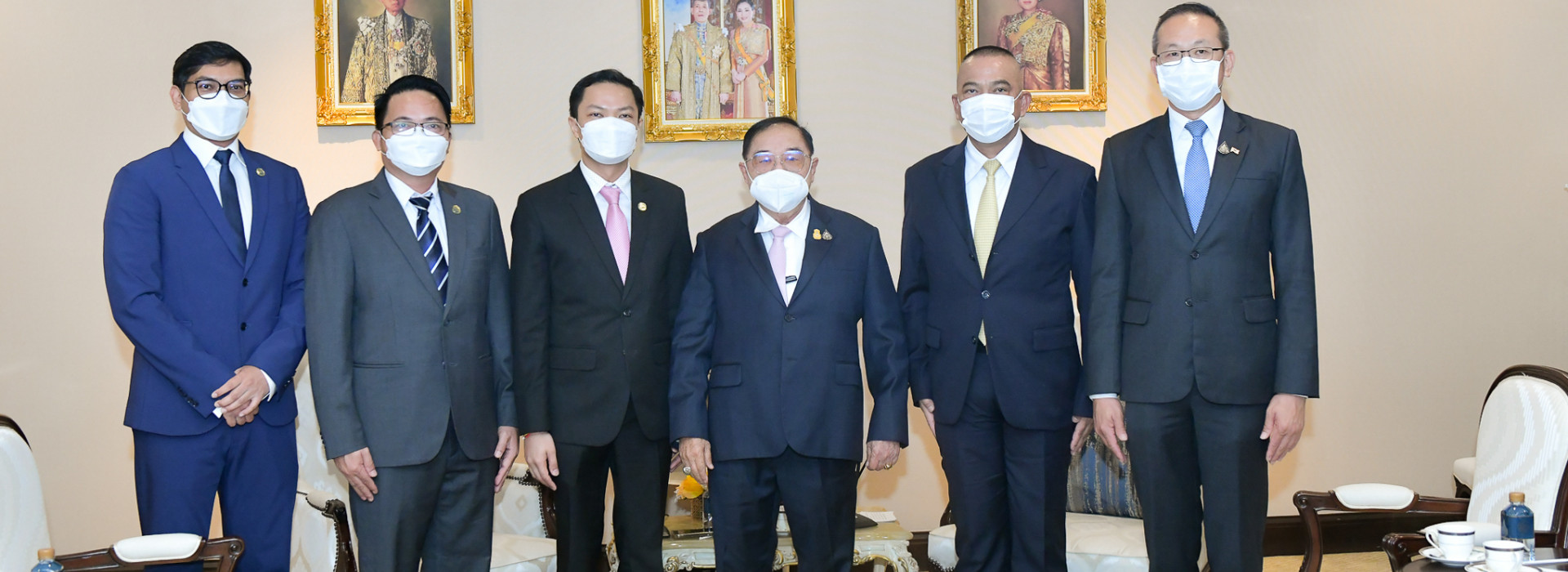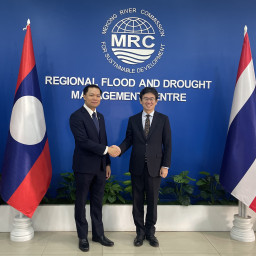Thai Deputy Prime Minister calls for earlier warnings of water discharges along Mekong
Bangkok, Thailand, 24 May 2022 — Thailand’s high-level representative to the Mekong River Commission (MRC) Council issued a call Monday for China and other riverine states to be even more forthcoming about the timing and quantity of water release along Southeast Asia’s largest waterway, for the sake of those affected.
The appeal from Gen. Prawit Wongsuwon, who is Deputy Prime Minister and Chairperson of the Thai National Mekong Committee, came during the first formal meeting with the CEO of the MRC Secretariat, Dr Anoulak Kittikhoun.
In his meeting with Kittikhoun in Bangkok, the Thai official noted that beyond the MRC’s pivotal role in “water diplomacy,” he wanted the intergovernmental organization to be an impartial, objective “knowledge broker” – disseminating vital data from each country.
Unannounced water discharges from dam projects upstream can be harmful in many ways, from flooding villages, to washing away crops and affecting fish survival.
“We need better information sharing and timely notification from China and others,” said Wongsuwon. “This is important for the protection of lives, livelihoods, property and aquatic life.”
China agreed in 2020 to share year-round hydrological data from two of its dams: not just amid the wet season, but during the dry season, when it draws upon stored water supplies. Such data is critical for countries across the Lower Mekong River Basin, for them to more accurately monitor water levels and forecast flood and drought.
As the MRC reported the 2020 announcement: “China has also agreed to share urgent information on any unusual rise or fall in water levels and discharges, as well as other relevant information on factors that might lead to sudden flooding in the lower reaches of the basin.”
However, one lingering issue is the agreement never defined what constitutes an “unusual” rise or fall – so the term remains open to interpretation.
In their bilateral meeting Monday, Wongsuwon and Kittikhoun found common ground in several areas, including the need for cutting-edge technology to monitor the river and its tributaries. In a recent OpEd, Kittikhoun touted his top three MRC priorities as “knowledge, technology and cooperation.”
To that end, the MRC is now equipping new water level monitoring stations, or renovating existing stations, with “telemetry” technology. This system enables a station to transmit water levels and rainfall data every 15 minutes: initially to a central MRC database, then to each Member Country.
Following his meeting with the Thai representative, Kittikhoun concluded: “I’m pleased that we share many of the same concerns and priorities.”
Note to Editors:
The MRC is an intergovernmental organization established in 1995 to boost regional dialogue and cooperation in the Lower Mekong River Basin. Based on the Mekong Agreement among Cambodia, Lao PDR, Thailand and Viet Nam, the MRC serves as both a regional platform for water diplomacy and a knowledge hub – to manage water resources and support sustainable development of the region.
###







